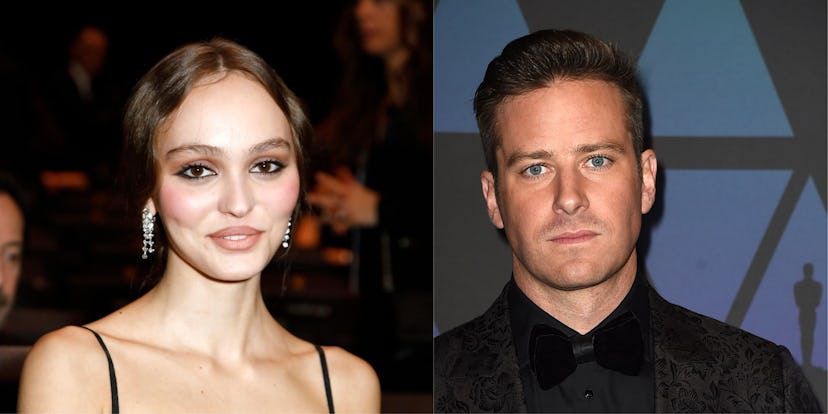Lily-Rose Depp Joins Armie Hammer for the Thriller Dreamland

Lily-Rose Depp will soon work with yet another actor from Call Me by Your Name: Armie Hammer. The model and actress, who recently starred alongside Timothée Chalamet in Netflix’s upcoming The King, was just added to Dreamland, a thriller that will tackle the opioid crisis.
Depp and Hammer will be acting in the Nicholas Jarecki–helmed film alongside Gary Oldman, Greg Kinnear, Michelle Rodriguez, and Evangeline Lilly. The movie will be a Traffic-like take on the opioid crisis, giving viewers a look into it from the perspectives of different characters. One storyline will follow Hammer’s character and his younger sister (played by Depp), who is ”a brilliant young woman in desperate hours” per Deadline. Meanwhile, Kinnear will be playing a university dean opposite Oldman. According to an earlier description of that plotline, “a university professor battles unexpected revelations about his employer, a drug company with deep government influence bringing a new ‘non-addictive’ painkiller to market,” as Deadline noted when the film was first announced, in early February. Rodriguez, on the other hand, is on a different side of the law than she was in the recent thriller Widows. In Dreamland, she will be suiting up as a DEA supervisor who goes after Hammer’s drug trafficker.
The director Jarecki spoke about the inspiration behind the film, saying in a statement, “The devastating impact of the opioid crisis reaches all corners of society.…It’s a testament to the issue’s urgency that such a large group of gifted performers have come together for our film. The opioid epidemic is a worldwide problem which needs our attention now.”
Dreamland comes in the wake of last year’s opioid-crisis drama Ben Is Back, which starred Julia Roberts and Lucas Hedges, whose dad, Peter Hedges, directed the film. Hammer’s involvement also follows his Call Me by Your Name costar Chalamet telling a different story of addiction in the recent Beautiful Boy. As Chalamet told W of the film’s importance, “Addiction doesn’t have a face; it has no preferred class or gender or race. I think it’s almost easier or something to be like, ‘Oh, well, that doesn’t affect me or my family or my friends. That’s another thing. When the reality is, it’s everywhere.”